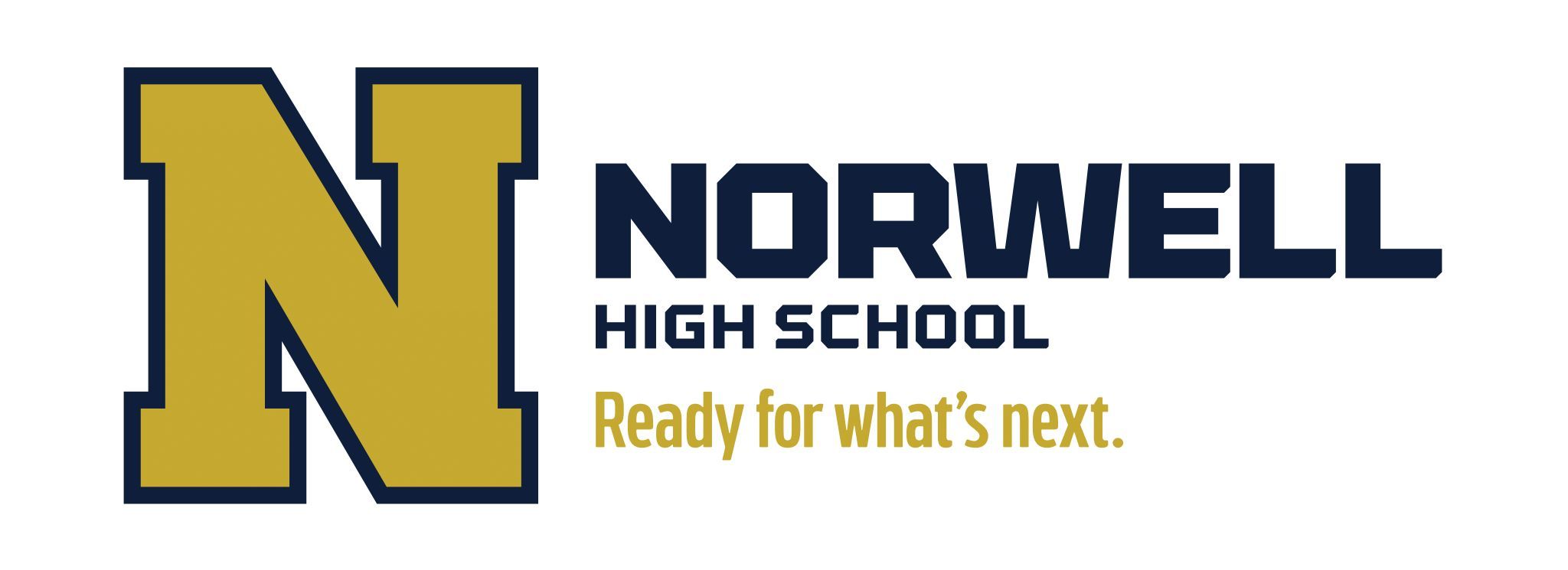Academics
Curriculum
Our curriculum aligns with Indiana’s Academic Standards and vertically across grade levels and content areas with increasing cognitive difficulty at each level. The curriculum is adapted and differentiated based on student needs. Our printed curriculum portfolios document state standards, performance indicators, instructional strategies, required background knowledge and vocabulary, assessments, and resources.
High levels of achievement are a priority in Norwell Community Schools. The foundation of instruction that continues through twelfth grade begins at the elementary level with language arts that encompass all aspects of literacy, mathematics, science, social studies, health, art, music, and physical education. Students also acquire computer literacy and keyboarding skills at this level.
The more than 125 courses that Norwell High School offers provide students with numerous opportunities to prepare to enter two-year and four-year colleges and the workforce. Some of these opportunities include technology education; career and technical education, which includes the Information Technology Academy; dual enrollment with post-secondary institutions; Advanced Placement courses; and internships with local businesses.
Area 18 Career and Technical Education
The Area 18 Career and Technical Education program is for students who are extremely sure they want to pursue a particular technical career. Students have numerous career paths from which to choose. Students who commit to this program during their junior and senior years are released for two to four periods each school day to receive the necessary training. Any interested student must apply and be accepted before enrolling. Students who enroll in these classes commit for the duration of the course. Any withdrawal needs to be approved by the principal.
Project Lead The Way
Project Lead the Way is a pre-engineering/engineering technology program for high school students. It offers a sequence of technology education courses that, when combined with college preparatory mathematics and science courses in high school, introduce students to the discipline of engineering and engineering technology prior to entering college.
ICE (Interdisciplinary Cooperative Education)
The ICE Program is an invaluable instructional strategy that allows students to gain skills necessary in a selected career area. ICE consists of related learning in the classroom and on-the-job training. A cooperative education experience benefits students in making the transition from school to the workplace whether the student leaves high school and goes directly into the workplace, attends a two-year or a four-year university, enrolls in an apprenticeship program, or enlists in the military.
Dual Enrollment
Norwell High School provides opportunities for students to earn college credit while in high school. Students must meet the admission requirements established by the educational institution (college or university) in collaboration with the school corporation. The tuition and fees are at the expense of the student’s family. There are two ways in which college credit can be obtained: 1) A student may take a Norwell High School course that has been approved for college credit by a local university and earn college credits by paying the university for that credit. 2) A student may attend a local college campus or take an online class from a college. Norwell High School will award credit for the class if it is comparable to a course listed in the Course Description Guide for the State of Indiana Schools and if the student provides written verification of the course grade upon completion of the course. The grades earned in courses taken at a college are not used in calculating high school G.P.A. or class rank.
AP Courses
The Advanced Placement (AP) program has been designed by The College Board. Advanced Placement courses allow students who are exceptionally advanced in a particular subject area the opportunity to do college level work. An AP course has the same degree of difficulty as a college course. When students finish a course, they have the opportunity to take the College Board test for that subject. A high test score may exempt a student from taking the equivalent course in college; the decision of granting credit is always that of each individual college. Admission into any AP class is based on a student’s G.P.A. and standardized test scores. Students who wish to take the AP College Board test in any of the courses for which they are offered may be responsible for paying all or a portion of the cost of the test.
High Ability Program
As defined in Indiana Code, a Broad-based Planning Committee is developing a specific plan for a K-12 High Ability Program with specific attention to curriculum and instruction, multifaceted assessment, professional development, guidance, and counseling.
Naturalization Examination (IC 20-30-5-7(d))
Each student enrolled in a U.S. Government course where credit is awarded for General, Core 40, Core 40 with Academic Honors, or Core 40 with Technical Honors designation is required to take the naturalization examination provided by the United States Citizenship and Immigration Services (USCIS) as administered by the student’s high school.
Number of students who took the naturalization examination (2024-2025 Semester 1): 91
Number of students who passed the naturalization examination by a score of not less than sixty percent on their first attempt (2024-2025 Semester 1): 90
Pass rate of the naturalization examination regarding the students who participated (2024-2025 Semester 1): 99%
